Text
you want to subcategorize caste-based reservations to make them more intersectional? because you care about poor people right? cool! does that mean you're gonna increase reservations for EWS from the unreserved category to reduce/eliminate the creamy layer of the general category too (or god forbid actually conduct a caste census to get actual data) or do you only care about economic inequality when it's at the expense of acknowledging caste-based discrimination exists outside of class too...?
#re: the new judgement#dont get me wrong i am glad they are increasing reservation for ews#but is it because they actually care about ews or because they think caste and class are interchangeable -> caste doesn't exist anymore???#well.#casteism#one thing i didn't get is if they're completely eliminating reservations for economically well off dalits and bahujans or just reducing it#because im reading different things from different sources and there's a huge difference#and the second one would make a lot more sense than the first#either way. it's the selectivism for me#india#this judgement is giving “i hate those undeserving usurpers” way more than it is “i want to uplift the most oppressed sections of society”#its the textbook reservations should be economic and not caste based! uc argument#liveblogging.pdf
7 notes
·
View notes
Quote
Savarnas often ask ‘would you go for treatment from a doctor who got medical seat using reservation?’ The whole narrative rests on testimonial injustice where the expertise of a DBA individual is discarded, despite having the degree and experience. Interestingly this argument will never be used for doctors who used EWS reservation or even paid management seats. The use of ‘Merit’ against reservation to undermine the intellect and capabilities of DBA community is the most popular example of epistemic injustice done on the community.
Pranav Jeevan, ‘Epistemic Injustice: Does Knowledge have Caste?��, Round Table India
#Round Table India#India#Pranav Jeevan#Savarnas#casteism#Dalits#Bahujans#Adivasis#EWS reservation#management quota#epistemic injustice#testimonial injustice#reservation
39 notes
·
View notes
Note
I meant lawyer idk why I said judge 🤦🏻♀️ and thank you so much for the details!!! I’ve had a bit of a week so I haven’t had time to read up on the details of what’s been going on. Im literally going off things family members or co workers have told me. Thanks for summarising it! Fingers crossed and hoping for a good ruling
Don’t worry about it! I just mentioned it because it’s v telling of how uneducated the side of the government is. ofc we were all expecting it, but it just exposes them for having zero understanding of sex and gender. and it’s so unfair that they even get to say a word in the supreme court, let alone be responsible for decisions that affect us.
also dont worry friend, we’re all having interesting and busy times in our lives and im happy that my rundown of the events helped💕
i've listed some of my fav parts from vrinda grover's statement here, and in other happy Indian queer news: Ramakka, a transwoman, is officially contesting for the Karnataka state elections from her constituency Kampli. She'd be the only one of 2500 candidates to be (openly) queer 💕
Good luck to her and good luck to all of us! 💕
#im rambling im sorry#marriage equality#india#indian lgbt history#inbox#but also other news: horizontal reservation for trans people was rejected from having a hearing#and some dalit transwomen were victims of violence at the hands of UC transwomen#and ughh what the fuck#we cannot be having this over intra-community politics like this#we all need to be better educated about sex gender and caste intersectinalities but wtf is new
5 notes
·
View notes
Text
एससी एसटी के आरक्षण में क्रीमीलेयर के खिलाफ सरकाघाट में दलित सगठनों ने दिया ज्ञापन, जानें क्या रखी मांगें
Mandi News: उच्च न्यायालय की ओर से 1 अगस्त को दिए गए निर्णय में अनुसूचित जातियों, जनजातियों के आरक्षण में उप-वर्गीकरण और क्रीमीलेयर की अवधारणा लागू करने के खिलाफ विभिन्न संगठनों, राजन���तिक दलों और सामाजिक कार्यकर्ताओं ने एकजुट होकर विरोध दर्ज किया। इसके बाद इन संगठनों और कार्यकर्ताओं का एक प्रतिनिधिमंडल एसडीएम सरकाघाट स्वाति डोगरा से मिला और उनके माध्यम से राष्ट्रपति को ज्ञापन भेजा। ज्ञापन में…
#creamy layer#Dalit organizations#himachal news#mandi news#memorandum#Sarkaghat news#SC ST reservation#submitted
0 notes
Text
Azad Samaj Party and Bhim Army Protest SC Reservation Elimination in Jharkhand
Statewide protest against elimination of SC reservation in chowkidar recruitment and minimal representation in forest officer appointments. Azad Samaj Party and Bhim Army staged a statewide protest against the Jharkhand government’s decision to eliminate SC reservation in chowkidar recruitment and appoint only one SC candidate among 170 forest officers. JAMSHEDPUR – Azad Samaj Party and Bhim Army…
#Azad Samaj Party#जनजीवन#Bhim Army#chowkidar recruitment#Dalit rights#forest officer appointments#Jamshedpur News#Jharkhand government#Kashif Raza#Life#SC reservation#statewide protest
0 notes
Video
Pratipaksha TV: Caste Census: X-ray Society?
#youtube @caste castecensus tribe backwardclass backwardsociety resources#caste reservation dalit pratipakshatv
0 notes
Text
Social Justice Warrior: Thanthai Periyar’s Struggle for All-India OBC, SC, and ST Reservation in Education | History behind Social Justice Day — Rational Sapien.
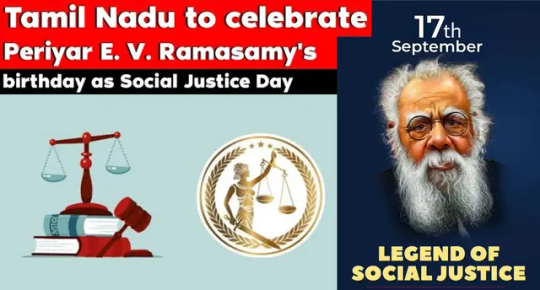
Thanthai Periyar, also known as E. V. Ramasamy, was born to a wealthy merchant in Erode and lived in opulence. In his early days, he was attached to the Indian National Congress and the Khadi movement. He carried Khadi clothes on the streets and sold them, and moved his family to a simpler life.
As a nationalistic Congress leader, Periyar carried bundles of Khadi clothes on his shoulders with the hope of bringing social justice alive. He focused on passing a bill on “Communal Representation” to ensure fair representation for non-Brahmins in government and other institutions. He carried copies of the bill in his hands for five consecutive Congress conferences.
However, due to the heavy Brahmin dominance in the party, his bill was not passed. Instead, the Brahmins twisted his “Community based Representation Bill” as a form of “Divisive communalism”. Periyar realized that the Congress movement was the “fort of Brahminical supremacists.”
Periyar was a powerful and wealthy man, but he gave up everything to fight for social justice. He resigned from his 26 positions, including that of Erode City Council president, to join the Congress party. Later, when he realized that the Congress was not committed to social justice, he left the party in 1925. He said, “If the nation was liberated without social justice, it would only benefit the dominant caste (Brahmins).”
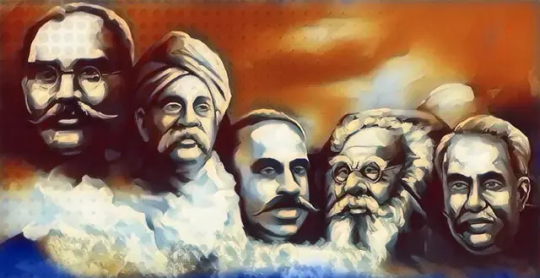
Rettaimalai Srinivasan (left), Justice Party leaders - P. Theyagarayar & Dr. T.M Nair, Periyar ( DK @ Dravidar kazhagam), Arignar Anna ( Dravidar Munnetra Kahzagam @ DMK)
During British rule in the 19th century, Brahmins dominated all fields. The fight for caste-based reservation has a long history, starting with Ayothidasa Pandithar’s call for non-Brahmins to have the right to employment in 1891, and continuing with the Justice Party in 1916.
The Justice Party pioneered social justice in South India by implementing reservation for non-Brahmin communities in 1916. This paved the way for inclusive growth. Brahmins claimed that giving equal representation to all communities was “divisive communalism” to maintain their own power and privilege.
The Justice Party came to power with the support of the people and the Council of Ministers led by King Panagal presented the bill in the Legislative Assembly in August 1921. This draft law was notified as a Government Ordinance Communal G.O 613 (16.9.1921) and a committee consisting of legislators was constituted to monitor the proper implementation of the Ordinance.
After this, on August 15, 1922, an ordinance was promulgated to provide class representation in educational institutions, but this ordinance was stalled due to the conspiracy of the Brahmins. The fact that what happened on that day was the lack of support from the governor and the white ICS officials. Hindu, Sudeshamitra etc. Brahmins wrote strongly against it.
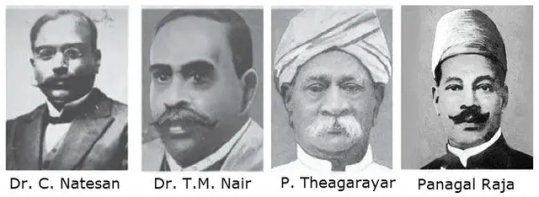
Justice Party Leaders
The Justice Party lost the third election in 1926. There was a dispute among the majority Swarajya Party over who would be the Chief Minister. Therefore, the Swarajya Party brought P. Subbarayan from the Justice Party and asked him to form an independent cabinet so that the Justice Party should not form the cabinet. Similarly, he formed a cabinet with himself as the Chief Minister and Swarajya Party member A. Ranganatha Mudaliar and RN Arokiasamy Mudaliar as ministers and took over the government on 4.12.1926. The Swarajya Party dreamed of winning Subbarayan away from the Justice Party and bringing it to their side. However, he also led the government after listening to the Justice Panagal, who was the leader of the opposition party. Therefore, his regime is considered as a Justice Party regime.
Suppurayan, a former Justice Party member, was supported by both the Swarajya Party and the Congress Party, but Suppurayan took office as Chief Minister in August 1927 when he moved a motion of no confidence in the Subpurayan cabinet, which was defeated with the support of 14 members of the Justice Party.
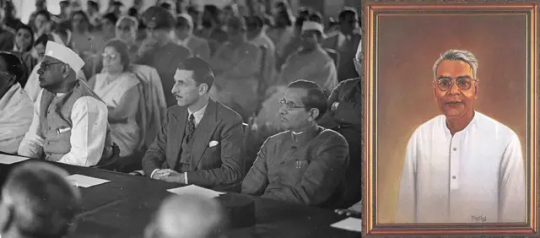
Paramasivam Suppurayan, a former Justice Party member successfully implemented Communal G.O with the help of Justice Party in 1928.
S. Muttiah Mudaliar left the Congress party opposing the Congress’s pro-brahmin activites and join the Suppurayan cabinet. He was the first to introduce the new Caste Reservation Act in the Madras Provincial Assembly on 04.11.1927. The Suppurayan Cabinet issued a new order for caste reservation in 1927 (G.O. M.S. No 1021).
On January 28, 1928, Subparayan did not accept the resolution passed by the Swarajya Party in the Legislative Assembly to ignore the Simon Commission. So two ministers belonging to the Swarajya Party resigned and therefore got the support of the Justice Party Suppurayan became Ministers in his cabinet S. Muthiah Mudaliar and MR Sethuratnam Iyer. Justice Party and Self-Respect Movement as their commander Soundarapandian came to the Suppurayan cabinet as the whip of the ruling party. Soundarapandian built this cabinet like a fortress.
This cabinet came into charge on 16 March 1928. This cabinet is also considered as the Justice Party cabinet.
This Cabinet passed Communal Ordinance №744, dated 13.9.1928. This order issued by S. Muthiah Mudaliar for the first time defined this number of places for all the communities. Yes, S. Muthiah Mudaliar, a non-Brahmin, issued this “Community based Reservation for all Government jobs” in 1928 providing 100% reservation for the entire population, including Brahmins, non-Brahmins, and minorities.

Community Based Reservation implemented by Suppurayan Devised by Justice Party in 1926.
After the implementation, Periyar pointed out some of the issues in the Communal Go G.O. M.S. No 1021.
Minister S. Muthiah Mudaliar brought this Communal Ordinance for the Registration Department he was holding. But, Periyar wrote in the “Kudiarasu” that communal representation should be implemented in all sectors. Accepting Periyar’s order, the Subbarayan cabinet issued this order in other departments as well. By these orders, non-Brahmins got reservation in government jobs. Thus Periyar enriched communal representation. Periyar praised this as “long live Muthiya Mudaliyar!” in Kudiarasu Editorial Magazine.
Periyar’s campaign progressed by demolishing the Brahminical structure by exposing the Brahmins’ conspiracy in his editorials and articles in the Kudi Arasu newspaper. Thanthai Periyar used his power and authority in the Madras province to educate all non-Brahmin communities about the true purpose of community-based reservation.
People who say that Periyar wasn’t important for social justice don’t understand how he changed people’s minds.
Periyar started the Self-Respect Movement in 1925, the same year as the Indian National Congress. He worked hard to expose the harmful structures of these systems to the people.He played a big role in social justice because of the ways he showed people how caste, religion, piety, superstitions, misogyny, ritualism, and formalism were harmful and kept people from respecting themselves.
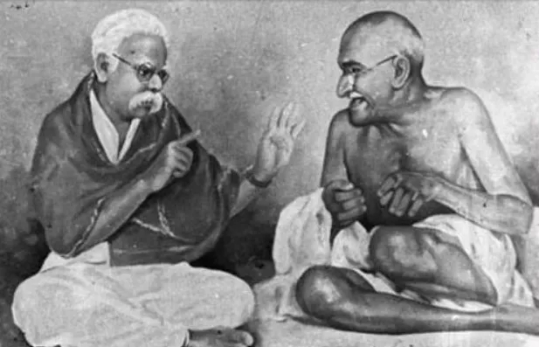
Periyar Left congress & Started Self Respect movement in 1925.
Periyar didn’t just go to public meetings but also to caste groups meetings. He spoke at caste conferences. Talking to caste groups is like handling a double edged knife But Periyar handled it tactfully. Periyar made miracles by changing the caste mindset into an egalitarian mindset and asking for the rights due to their caste.
Beginning in 1925, he addressed more than ten caste conferences covering the majority of the population. In particular, the conferences of castes like Nadar, Sengundar, Vanniya Kula Chatriyas, Chettiars, Pallars and Adi Dravidians are included in it.”
A caste conference should be convened to take the shortcomings of each caste to the government. If you call me to caste conferences, I will talk about everything and Caste annihilation. He was the one who said that the cruelty of one being superior and one being inferior taught by the Varnashrama Dharma should be eradicated.
He also expressed the shame of having caste Pride. At the same time, he also spoke for rights that were denied in the name of caste. He brought egalitarianism and social justice rights so subtly in the People’s Forum.
After India’s independence, Periyar held caste abolition conferences in a political environment where people developed caste pride out of greed for position and power. Periyar always talked about social justice rights at all conferences, no matter whether they were caste Group conferences or caste abolition conferences.
The Justice Party was able to bring about social change by implementing community-based reservation under British rule through dual rule system. Even after Justice Party, this system of reservation continued till 1950.
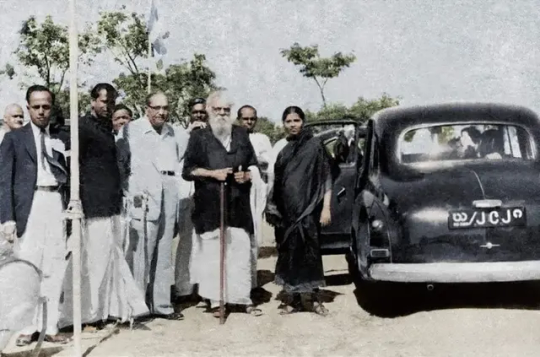
Babasaheb Ambedkar & Thanthai Periyar E V Ramasamy
The Constitution enacted on January 26, 1950, by the intellectual revolutionary Ambedkar, provided for reservation in employment only, but there was no reservation in education. After Independence, Brahminism made its first major attack on social justice brought by Justice party.
It was then that the greed of the brahmins made them gobble up the reservation reserved for the brahmins themselves. Sembagam Durairajan and Srinivasan case played a major role in that. They said “Both of them didn’t get seats in medical college and engineering college respectively”. They filed a case in the Madras court claiming that this was against the fundamental provisions of the Constitution.
After hearing the case of these two, the court found that “Sembagam Durairajan did not apply to the medical college and Srinivasan falsely reported that he did not get a seat even after 14.29% of the reserved engineering seats for Brahmins were filled.” Through their Greediness, the wish of the Brahmins was fulfilled. On 27.07.1950, The Madras High Court struck down the Madras Province’s “Community-based Reservation Rights Act in Education and Employment” Act, which was in implementation from 1924 to 1950, as unconstitutional. The Supreme Court also gave the same verdict.
How will Periyar, as a man who threw away his prosperous life and positions in Congress fighting for the right of social justice for all oppressed castes, accept this verdict?.
14th August in 1950, Periyar launched agitation and gave the clarion call to the people of Tamil Nadu to express protest by declaring “Communal Reservation Day”. The protest was against the judgment given by Supreme Court of India that stayed the Communal Reservation Policy implemented in Madras Presidency right from 1928. On 07.08.1950 at Robinson Park, Chennai, 50,000 people attended the meeting and Periyar invited people from all walks of life to fight.
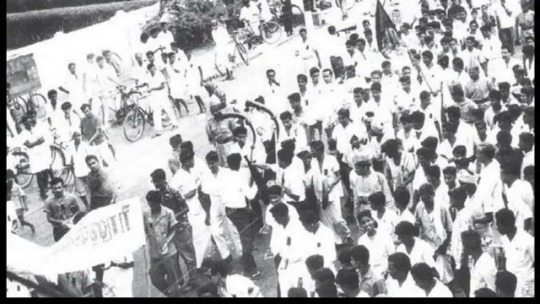
Chennai Pachaiyappa’s College Students joined the protest with Periyar.
On 14th August (1950), Accepting Periyar’s invitation, various students staged a protest. Students of Chennai Pachaiyappa’s College protested against the court order. Periyar’s Call ignited Total agitation in Tamil Nadu in all sectors and all sections of people including students, teachers, doctors, govt. servants, all non-brahmins joined the struggle.
The slogans of “Abolish the political law, want communal rights” chanted by the entire gathering echoed up to the Delhi Union government.
On December 3, 1950, in Trichy, Periyar gathered all-party communal rights supporters including Perarignar Anna (DMK), Kamarajar, and convened a communal conference at Periyar House. He conducted a conference and said, “You have given four water pipes with taps to the streets; but you have not given the water supply to that tank! We have been given reservation for employment, but we have not studied yet. Then, how can we go for job opportunities?”. Periyar passed the Communal G.O.
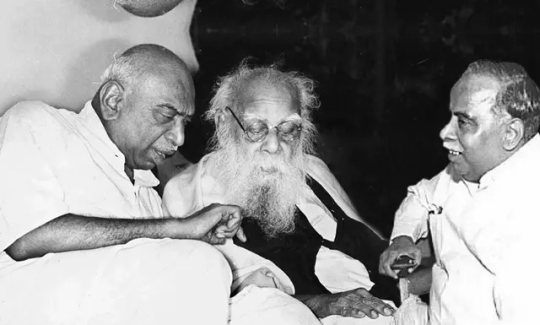
Kamarajar (Left), Thanthai Periyar (center), Perarignar Anna (right).
Tamil Nadu registered its protest that students are protesting and shutting down shops everywhere in Tamil Nadu. They protested by showing black flag to Union Ministers. On the other hand, Kamaraj and Sardar Vallabhbhai Patel conveyed the Seriousness & strength of Periyar’s Protest to the the Prime Minister of the India, Jawaharlal Nehru. Ambedkar also registered his opposition.
Periyar’s voice spread not only to the ears of the Delhi Union government but also to the people about the necessity of reservation in education. Periyar’s agitation forced the Nehru government to come down on education reservation.
The first amendment was tabled in Parliament by Chief Minister Pandit Jawaharlal Nehru on 10.05.1951. Including Education reservation, a total of 14 amendments were made in the Constitution through a single proposal. Nehru mentioned this in his introductory speech on the amendment. “Protests in Madras province lead us to amend the law”. Parliament passed it on 18.05.1951 with an overwhelming majority and made it law.
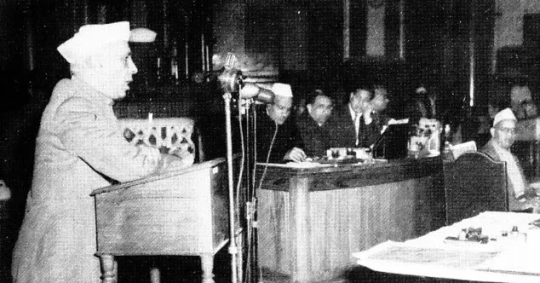
First Constitutional amendment by Chief minister of India, Pandit Jawaharlal Nehru.
In order to overcome the verdict in the Champakam Durai Rajan case, the Parliament brought in the First Amendment Act, 1951 and inserted clause 4 to Article 15. The provisions of this clause are in the nature of an enabling provision (allows, felicitate) and do not impose any obligation on the State to take any special action under it. It merely confers discretion to act if necessary by way of making special provisions for socially and educationally backward class and Scheduled Castes and Scheduled Tribes.
Article 15(4) : “neither clause of this Article 15 nor Clause 2 of Article 29 shall prohibit the State from making any special provision for the advancement of any citizen of socially and educationally backward classes or of Scheduled Castes and Tribes”
Until then, Article 16(4) ensured reservation only in case of employment. Reservation in education came only after the First Amendment, which ensured reservation for backward, scheduled, and minority communities across the country by the Union and State Governments. Through the efforts of Periyar and the DMK, the addition of Section 15(4) to the Indian Constitution paved the way for the Mandal Commission protests by periyarists and the implementation of all-India OBC reservation in education by V.P. Singh.
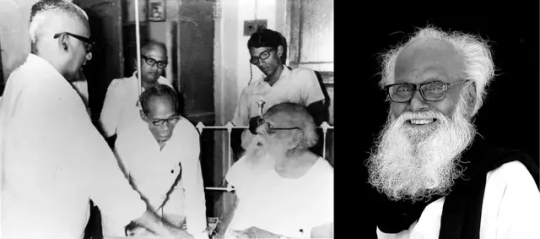
V Anaimuthu (centre) receives permission from Periyar to publish his thoughts.
When Periyar passed away in 1973, Anaimuthu, A periyarist, continued the struggle for social justice of backward classes. Anaimuthu parted ways with the D.K and formed the Periyar Sama Urimai Kazhagam (Periyar Equal Rights Kazhagam) which took up reservation as their main agenda. Between 1976 and 1982, Anaimuthu conducted his campaign for reservation in education and employment in the Central government. In Bihar, their volunteers filled the prison as part of this demand. He took the struggle to New Delhi. The Mandal Commission was formed because of these pressures.
Anaimuthu made sure the Mandal Report was released in Parliament in 1980, thanks to which 50 per cent reservation for the Backward Classes was passed. But it was not implemented as promised, hence he began to meet Members of Parliament from 1981 onwards. In 1990, the then Prime Minister V P Singh announced in the Parliament that the recommendations of the Mandal Commission would be implemented Which provides 27% reservation for OBC’s on top of 23% reservation for SC and ST in India.
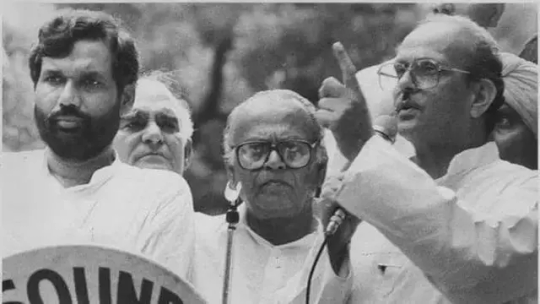
Former Prime Minister V.P. Singh addressing a rally about implementation of the Mandal Commission Report in August 1990
Indira Sawney challenged the Mandal Commission and government decision to implement the OBC Reservation by V.P.Singh in the Supreme Court. In 1992, All India OBC reservation was implemented after Indira Sawney case was Closed with a provision that maximum reservation can be 50% of the educational seats or job vacancies and creamy layer of income of ₹8 lakhs per year. Anaimuthu’s untiring effort to implement the Mandal Commission report in this decade is a milestone in Indian history.
There are so many leaders who have made the government realize the right of social justice. But Periyar was the foremost among the leaders who spread the importance of Social Justice through reservation to the people and even today his followers ensure the
Periyar was a tireless advocate for the rights of the oppressed and backward people in the People’s Forum, touring all the nooks and corners of Tamil Nadu to the extent that he gave up his elite life. People say, “There was no place in Tamil Nadu where Periyar did not set his feet.” Periyar was an uncompromising opponent of the Brahminical intrigue against social justice reservation in the political arena. Social justice is the tool that Periyar used in his political arms to pave those paths against Brahminical intrigue and restore the social rights of the Tamil Nadu. Calling the social justice hero Thanthai Periyar’s birthday as Social Justice Day is a small thank-you to him for his lifelong struggles for the majority oppressed castes.
“One comes to school for training to acquire merit and skill. But if you need a qualification and skill even to study and get training, this is foolishness,” said Periyar. The ruling union government is keeping the meritorious children of our children by imposing merit tests like NEET to protect the power structures of Brahminism. Let us stand on the path of Periyar, who stood for social justice, and take a pledge to eliminate the anti-social justice selection criteria on this Social Justice Day.
#Periyar#Dravidian#Education Reservation#All India OBC SC ST Reservation#E V Ramasamy#First Constitutional Amendment#Indian Educational Reservation#Dalit Rights#Babasaheb Ambedkar
1 note
·
View note
Text
તમિલનાડુએ દલિત ખ્રિસ્તીઓને લાભ આપવા માટે બંધારણીય સુધારાનો ઠરાવ અપનાવ્યો
તમિલનાડુએ દલિત ખ્રિસ્તીઓને લાભ આપવા માટે બંધારણીય સુધારાનો ઠરાવ અપનાવ્યોવિધાનસભાએ ઠરાવ પસાર કર્યો જ્યારે ભારતીય જનતા પાર્ટી (BJP) નેતાઓ વિરોધમાં વોકઆઉટ કરી ગયા.તમિલનાડુ એસેમ્બલીએ બુધવારે એક ઠરાવ પસાર કરીને કેન્દ્રને બંધારણમાં સુધારો કરવા અને ખ્રિસ્તી ધર્મમાં ��રિવર્તિત થયેલા અનુસૂચિત જાતિના લોકોને સમાન અધિકારો, સંરક્ષણ, છૂટછાટો અને અનામતનો વિસ્તાર કરવા હાકલ કરી હતી.તામિલનાડુના મુખ્ય પ્રધાન એમકે…
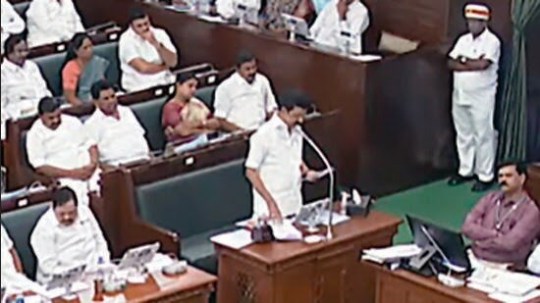
View On WordPress
#Christian dalit#Cristina dalit sc benifit#Tamil Nadu Assembly adopts resolution urging Centre to extend reservations to Dalit Christians#tamilnadu
0 notes
Text
Splendid Shangri-La Rasa Ria Kota Kinabalu
Splendid Shangri-La Rasa Ria Kota Kinabalu
Story and photos by Dr. Michael Lim The Travelling Gourmet TM Copyright all rights reserved The indomitable and irrepressible Travelling Gourmet TM jets to Sabah, the Land below the Wind to experience a… MARVELLOUS paradise in the Shangri-La Rasa Ria beach resort at Dalit Bay. Arguably the best beach resort in Sabah, the beach is 3km long! It is best to stay in the Ocean Wing with its own pool…

View On WordPress
#Canopy Walk#Dalit Bay#Dr. Michael Lim is The Travelling Gourmet TM#Eggs Florentine#Kam Heong Chicken#Nature Reserve#Oceano#Roast Duck#Sabah#Shangri-La Ras Ria Kota Kinabalu#The Eighth
0 notes
Text
its only been a decade of modi. they have done almost everything on that list — even the mere ideological success of elevating the butcher of godhra would've been enough, but no. the temple is complete, the court has ruled nobody burned the mosque down and even if they did, it was a good thing, the rioters and rapists have been garlanded, kashmir has been conquered de jure, citizenship has been made contigent, reservations and federalism have been weakened, vigilante cow activism has new life, dalit politics constantly threatened with assimilation and new models of muslim dispossession are imported from israel. all this with a capture of courts, election commissions, the bureaucratic apparatus, academia and media. the soil of this country had to have been rotten.
457 notes
·
View notes
Text
एससी एसटी आरक्षण में क्रीमीलेयर के खिलाफ सड़कों पर उतरे दलित संगठन, पटना में हुआ लाठीचार्ज; कई जगह सड़कें जाम
Bharat Band: एससी-एसटी आरक्षण में क्रीमीलेयर पर सुप्रीम कोर्ट के फैसले के खिलाफ आज दलित संगठनों ने भारत बंद का आह्वान किया है। बिहार, उत्तर प्रदेश, झारखंड, राजस्थान और पंजाब प्रमुख राज्य हैं, जहां असर देखने को मिला है। बिहार के जहानाबाद में प्रदर्शनकारियों ने नेशनल हाईवे जाम कर दिया। इससे लोगों को परेशानी हुई। जाम हटाने पहुंची पुलिस के साथ प्रदर्शनकारियों की धक्का-मुक्की हो गई। पांच लोगों को…
#creamy layer#Dalit organizations#Lathicharge#Many places#patna news#roads blocked#SC ST reservation#streets
0 notes
Text
Indian Prime Minister Narendra Modi inaugurated the Ram temple in Ayodhya in the key northern state of Uttar Pradesh in January in hopes it would earn him a massive victory in the national election that concluded in June. That didn’t happen—at least not to the extent that Modi, his Hindu-nationalist Bharatiya Janata Party (BJP), and their ideological fountainhead Rashtriya Swayamsevak Sangh (RSS) expected.
In what has widely been described as a shock result, the BJP won merely 240 seats in the 543-seat parliament, after setting a target of 400 seats. Modi has formed a government but only with support from other parties.
Like any election result, the outcome had multiple causes that will take time to fully sort out. But one thing is already clear: Modi failed in his long-running bid to homogenize India’s Hindus across castes and cultures and consolidate their vote for his political benefit.
In 2014, Modi came to power on the back of religious nationalism and security issues, and he continued that trend in 2019. This year, in the absence of any urgent security threat from regional rival Pakistan and rising concerns over unemployment, inflation, and authoritarianism, Modi banked on the RSS’s homogenization strategy.
The Ram temple was built on a site long disputed with Muslims, where a 16th-century mosque stood until December 1992, when a group of Hindu nationalists razed it to the ground allegedly on the BJP’s provocation. Experts said the BJP had envisaged the temple would instill pride in Hindus, feed their Muslim animosity, and bring them under the Hindu umbrella to choose Modi.
Even though, by and large, the Hindu community seemed to have been pleased with the inauguration of the temple, that didn’t translate into votes for Modi across the Hindu hierarchy. Instead, the results exposed the weaknesses of the homogenization exercise.
Hartosh Singh Bal, an Indian journalist and the executive editor of the Caravan, said there is “diversity in Hinduism” and the election results prove that it can’t be “papered over by directing attention and hatred outwards” toward Muslims. This election proves that “Hindus are not a monolith” and that “various segments of Hinduism have a successful chance of taking on the BJP,” he added in reference to tactical voting by lower castes in Uttar Pradesh against the BJP.
Karthick Ram Manoharan, a political scientist at the National Law School of India University in Bengaluru, said that in Tamil Nadu, a state in southern India with the second-biggest economy in the country, the BJP did not win a single seat out of a total of 39.
“Hindus are the absolute majority in Tamil Nadu, but they still mostly vote for the secular Dravidian parties,” Manoharan said in reference to local parties that have emerged out of social movements opposed to an upper-caste Hindu order that the BJP and RSS have been long accused of nurturing and propagating.
In March, just a month before voting began, I witnessed saffron-colored flags expressing support for Modi’s party jutting out from rooftops and windows in tightly packed homes in western Uttar Pradesh. Some people I spoke to said that BJP workers had decided to adorn the neighborhoods as they pleased, but underneath the flag-waving, a large-scale discontent was brewing over a lack of employment opportunities.
The upper-caste youth seemed confused, if not yet disenchanted, with Modi and in the absence of industry and strong local economies once again mourned the loss of government jobs to affirmative action. (The Indian Constitution reserves almost half of all state jobs for people from lower castes and others who confront a generational disadvantage and historical discrimination.)
Meanwhile, Dalits, who sit at the bottom of India’s Hindu hierarchy, in hamlets nearby who depend on the quota for their dignity and livelihood were quietly recalibrating their options. The mood was starkly different from 2014 and 2019 when I visited some of the Dalit-dominated parliamentary seats in Uttar Pradesh. Back then, Dalits I met were upbeat and decisively pro-Modi. They said they supported him since they believed that he might raise their stature in the Hindu hierarchy.
But 10 years later, they suspected the BJP was plotting to weaken the constitution, the only assurance of rights for marginalized communities in a country where upper-caste Hindus continue to hold social capital and economic power.
Recent comments by BJP leaders that if Modi won 400 seats, he would change the constitution spread anxiety among lower castes that the party intended to scrap the reservation system. The BJP repeatedly denied this, but the suspicion that it is first a party for upper-caste Hindus is deep-rooted among lower castes, and experts believe the comments were part of the BJP’s political strategy.
“They were testing the waters to see what would be the reaction,” said Sushil Kumar Pandey, an assistant professor of history at Babasaheb Bhimrao Ambedkar University in Lucknow and the author of Caste and Politics in Democracy.
“The opposition picked it up and campaigned on it, telling people a change in the constitution could mean losing your livelihood, your jobs,” Pandey added. “That worked at a time [when] people were also scared of privatization” and in government-run sectors.
For Dalits, it was about more than jobs. The Indian Constitution is nearly worshipped by the community and celebrated en masse on the birth anniversary of the Indian intellectual who wrote it. B.R. Ambedkar was no fan of Ram and advocated against the caste discrimination inherent in Hinduism all his life, even converting to Buddhism when he felt there was no escaping caste-based prejudice. While he couldn’t annihilate the caste system, he ensured that the constitution offered lower castes a quota in government jobs to gradually uplift them.
In his honor, and as an ode to the progressive document, Dalits sing songs in praise of the constitution and hail it as the upholder of their dignity in a society where they continue to be belittled. Any change to the text was unacceptable. “Their cultural identity is linked to this book,” said Ravish Kumar, a journalist and the host of a popular YouTube news show.
In the south, too, there was a fear of culturally being subsumed by a Hindi-speaking upper-caste elite. Indian federal units, or states, were defined in the 1950s on the basis of language, and to this day south Indians identify themselves on the basis of the language they speak. The Ram temple had no resonance in the southern states, particularly in electorally significant Tamil Nadu, with the highest number of seats regionally. Tamils were wary that the RSS’s homogenization agenda would drown out their cultural ethos and impose a secondary status on the Tamil language.
Manoharan, the political scientist, said that in Tamil Nadu, it was “not so much religious but fear of cultural homogeneity” and “a language policy which will give importance to Hindi speakers over Tamil speakers and upper-caste Tamils over other backward castes.”
In a state where “88 percent people come from so-called lower castes” and “69 percent have jobs under affirmative action through a special act,” people were also extremely worried that the BJP may “water down” the employment quota promised in the constitution, Manoharan added.
The southern Indian states have a longer history of resistance to upper-caste domination, a higher literacy rate, better economies, and a tradition of secular politics. While the BJP maintained its tally of 29 seats from the last election, it is being seen as a poor result considering the inroads the RSS has made in the south.
For instance, in the southwestern state of Kerala, the RSS has more than 5,000 shakhas, or branches, second in number only to Uttar Pradesh, India’s most populous state—yet “despite the fact that the RSS has thousands of training grounds in Kerala, they are unable to get influence,” said K.M. Sajad Ibrahim, a professor of political science at University of Kerala. “That’s because while religion is important, communal harmony is more important to people here. BJP tries to create tensions, and that doesn’t work here.”
The BJP managed to gain one seat for the first time in Kerala, but that isn’t being attributed to its ideological success or expansion of homogenization project but to the winning candidate’s personal appeal. Suresh Gopi, the winning candidate, is a popular movie star.
In many states in the Hindi belt and even in the south, the BJP did well. The upper castes and urban voters are standing firmly behind Modi. Kumar, the journalist, said it would be foolhardy to dismiss Modi—and the bigger Hindutva, or Hindu nationalist, forces backing him—just yet. He said Hindutva hasn’t lost and only faced a setback. “The BJP was trying to dominate caste politics with Hindutva,” he said, “but the election result shows that dominance has cracked.” However, he added, “it has only cracked—the ideology still has wide-scale acceptance.”
Everyone else Foreign Policy spoke to concurred but added that Hindus are far too diverse to be homogenized. Manoharan said the results exposed the weakness of the homogenization agenda and its faulty premise. “Hindutva’s aim for homogeneity is confounded precisely by a structural feature of the religion-culture it seeks to defend—caste,” he said.
22 notes
·
View notes
Text
BR Ambedkar: The Architect of Indian Constitution and a Champion of Social Justice
What do you think of BR Ambedkar and his Mahaparinirvan Diwas? Share your thoughts, questions, or comments below. We would love to hear from you.
Today, December 6th, is Mahaparinirvan Diwas, a day of remembrance and tribute to Dr. Bhimrao Ramji Ambedkar, popularly known as Babasaheb Ambedkar. He was a prominent Indian jurist, political leader, philosopher, social reformer, and Buddhist revivalist. He is widely regarded as the architect of the Indian Constitution and a champion of social justice and equality. He dedicated his life to…
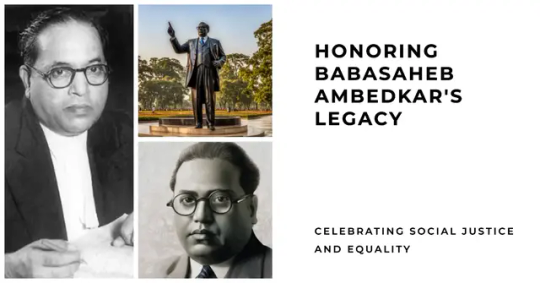
View On WordPress
#BR Ambedkar#Buddhism#Chaitya Bhoomi#Dalit rights#equality#Hindu Code Bill#Indian Constitution#Mahaparinirvan Diwas#Reserve Bank of India#social justice
1 note
·
View note
Note
It's me, the reservations anon again. Thank you for your answer, I got some insights that I was previously overlooking.
Why it felt unfair to me is because I've seen a few instances where the reservations did my general category friends bad. The cutoffs vary way for colleges vary way too much when you compare the general category cutoffs with the reservations cutoff. For example, to get into one of the top colleges, a general category candidate had to get 40 more questions correct in an entrance exam compared to that of a SC/ST candidate.
My friend who is from an economically weaker background didn't get a seat in the general category but another from a stronger economic background but SC/ST category got a better seat.
I completely understand how reservations equip people of "lower castes" (I completely support your views about abolishing the caste system entirely.) but I feel it would be better if reservations were done on the basis of economic background and not the caste.
I completely respect that your views are different from mine. It's just that my experiences with reservations are different.
I don't hold any strong views, I'm simply here to gain a different perspective and understand reservations better. Thank you!
yes there are issues with the way reservations function I'm no one to deny that but I'm not really on board for the alternative intersectionality is really important here. a brahmin in poverty is limited by his economic background while a dalit in poverty is limited by both his caste status + economic background. and again, either way the solution to this is not to decrease or completely remove reservations, nor is this a flaw inherent to reservations, thereby making them unfair in nature. really the onus should be on colleges to reduce the ridiculously high cutoffs or to increase seats (and the implementation of reservations could be reformed however way seem fit sure)
and tbh the purpose of reservations isn't even poverty alleviation it's really social justice and inclusion cause let's be honest what does it matter that you go to a great university when your classmates are casteist to the point of you dropping out or an even worse outcome. caste does affect access to resources
#hashtag adding to the unemployment crisis#i'm sorry if this doesn't make sense at any point or if it isnt clear i'll just revise it in the morning#asks#anon
16 notes
·
View notes
Note
I know the history of the word Hindu. I was simply using it to give you clarity.
You've made your perspective clear. Deflection and whataboutism are your weapons.
You are so quick to play your dalit card everywhere, but you forget that dalits were among the persecuted Hindus too. I never denied that the caste system is evil and needs to be gone completely. Why bring it up in a conversation where it wasn't even an issue?
You're so far into your leftie liberal mode that you don't even realise that you're here because of the efforts of fellow Hindus' efforts to abolish the caste system and bring in reservations to compensate for the oppression. It's still a work in progress but there's definitely progress.
Moreover, had this nation been running on the same values as Islamic rulers of the past who broke our temples, you'd be killed just for being a queer or being a Hindu who didn't convert.
Just look at the minorities in other Islamic countries.
But you won't, I know. Because hating fellow Hindus and denying history is more important for you. It's the cool thing to do these days.
One day you'll learn, hopefully soon. I wish you luck. 🙏
How dare you say Babasaheb Ambedkar was a Hindu when he died a Buddhist and swore to not die a Hindu. How dare you insist that the real people who worked towards societal change for women, Dalit and Adivasi people, like Jyotiba Phule and Savitribai Phule, did so at 0 cost of their 'Hindu' society. Savitribai Phule did not have shit flung at her every day by brahmins for you to say 'Hindu' as though they weren't the ones who opposed her attempt to educate girls.
How dare you, lastly, insist that Dalits are ALSO Hindu, as though they haven't been dehumanised and humiliated for centuries on end and prevented from entering temples out of 'Impurity'.
In all our arguments, I find it INCREDIBLY funny that you seem to always focus on Muslim invaders, but never at all focus on the kind of bullshit the British wrecked on us. I'll tell you why: its because the British were the ones to club ALLLLLLL these varied identities together under a wishy washy 'Hindu' label in censuses. Dalit people are also under this label BECAUSE OF CLERICAL LAZINESS.
And this shit worked PERFECTLY for Hindu Nationalists. The more uniform our 'identity' got, the better. But of course, caste was essential to the functioning of 'Hindu' society.
So I give you this chance to inform me: What kind of society acts like this? Why are Dalit children beaten in schools for touching the wrong water pot? And forgive me for assuming, but if you have a household help who comes by, why do you treat her in a way which is 'different' to your family? Why is your circle of friends the same 3 people from the same community? Why do we live in this kind of society? What morality are we functioning on? Tell me, without resorting to justifying henious acts by saying 'Dharma'. I dare you.
-Mod G
--------------------------------------------------
Hello again, Anon-Who-Has-Unfollowed-But-Is-Still-Here-Inexplicably,
Mod G actually replied to you before I did. You didn't say about their reply. That's fascinating. They answered your ask in a far more direct way so I thought adding the same thing would be redundant. Turns out, it wouldn't have been redundant because you didn't even read what they said. Who knew.
You know what? I actually did say what the conquerors did was wrong. I directly talked about it. That's not what-aboutery. Did you not even read that part? I said what they did was wrong and what you're doing is wrong too. (I'm saying it again because you seem to be under the impression that I'm not holding these historical figures responsible for their actions sufficiently enough for your taste.)
I talked about being dalit in terms of reclamation and reparation. It is directly related to the topic you were talking about. Sure, free to tell me that I should be grateful to my "fellow Hindus" and should express that gratefulness by shutting my mouth and not criticizing them when they're doing something wrong. Got it. All that work-in-progress you talk about but I should still know my place and not speak over savarna Hindus. Understood.
Newsflash, the said beloved Hindus will ALSO gladly kill me for being a queer, as you put it. Right now, in fact. We're not exactly a queer-friendly nation, if you haven't noticed.
You also seem to be under the impression that Hindus=Hindutva which is just a wrong assumption on your part. In fact, from all the replies we're getting it seems to me that the other Hindus disagree with your hindutva politics. What do you make of that?
But yes, I'm a filthy leftie liberal blah-blah. I'm hating Hindus because I said something they're doing is wrong. But all you do is keep talking about Muslims and Islamic countries and don't even wonder why.
-Mod S
#incorrect quotes#incorrect mahabharat quotes#i'm tired#i'm so fucking tired as shit#mod replies#ask reply#mod: g#mod: s#asks
21 notes
·
View notes
Text
People who benefit from casteism aren't bramhins 90 percent of the time, it is the vaishyas, i.e shopkeepers and land-owning farmer class who benefit off dalit farm labourers and poor dalit customers. Often, it is people call themselves "lower caste" by virtue of being down in the heirarchy; they benefit from caste reservations made for dalits while still opressing dalits. Often, and this can be a hard concept to digest, often they are ones who have succeeded in getting OBC certification in many states, so they are able to posture as dalit when it benefits them socially and politically and yet very actively perpetuates the cycle of opression on dalits.
It benifits caste-deniers to present casteism as bramhins vs. non-bramhins but it's important that we never forget what it really is: dalit vs. non-dalit.
#“speaking as a lower caste person” shut up.#see how modi benifits off his OBC? that is exactly what i mean#casteism#anti caste#anti hindutva#india
19 notes
·
View notes